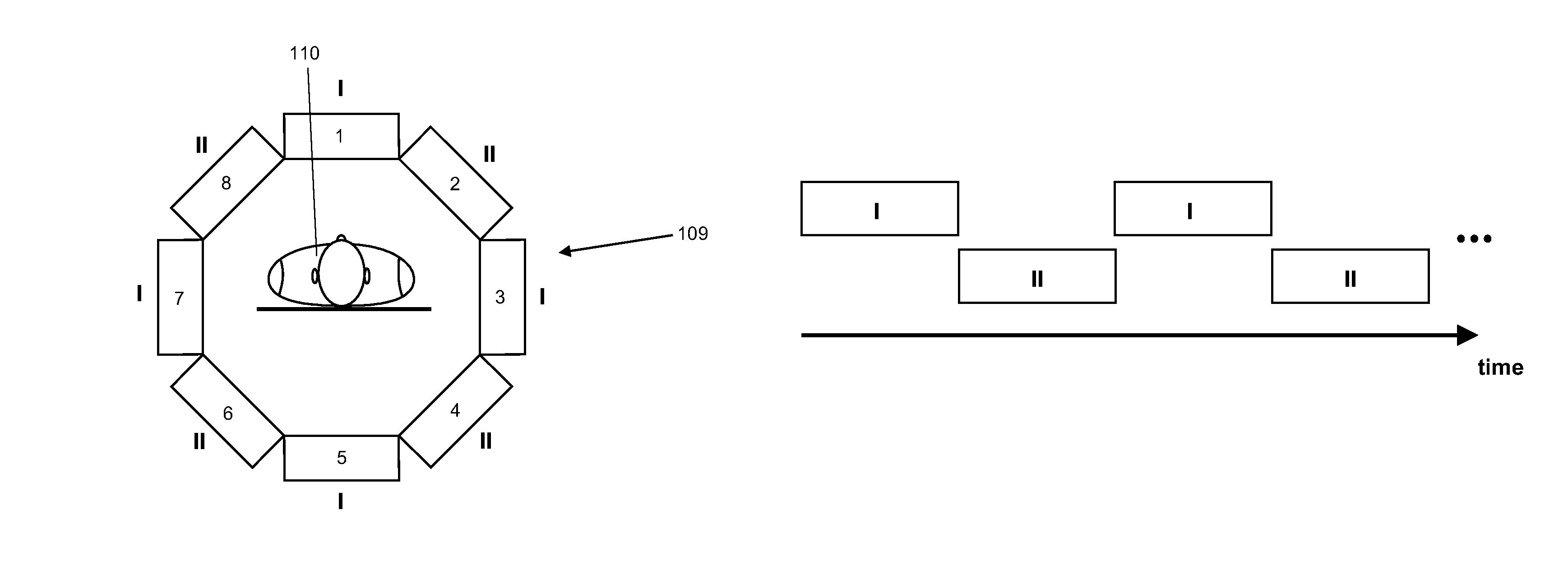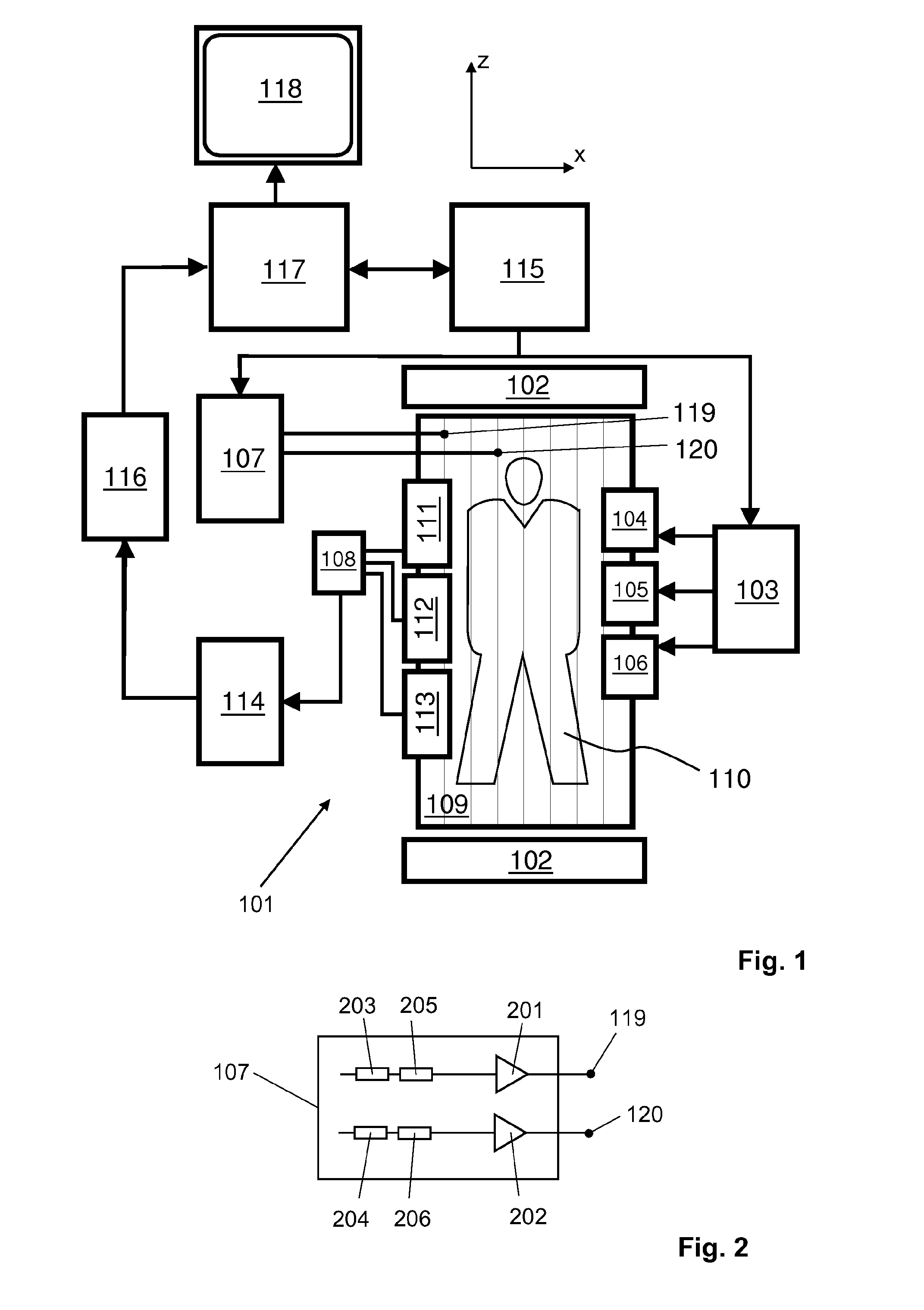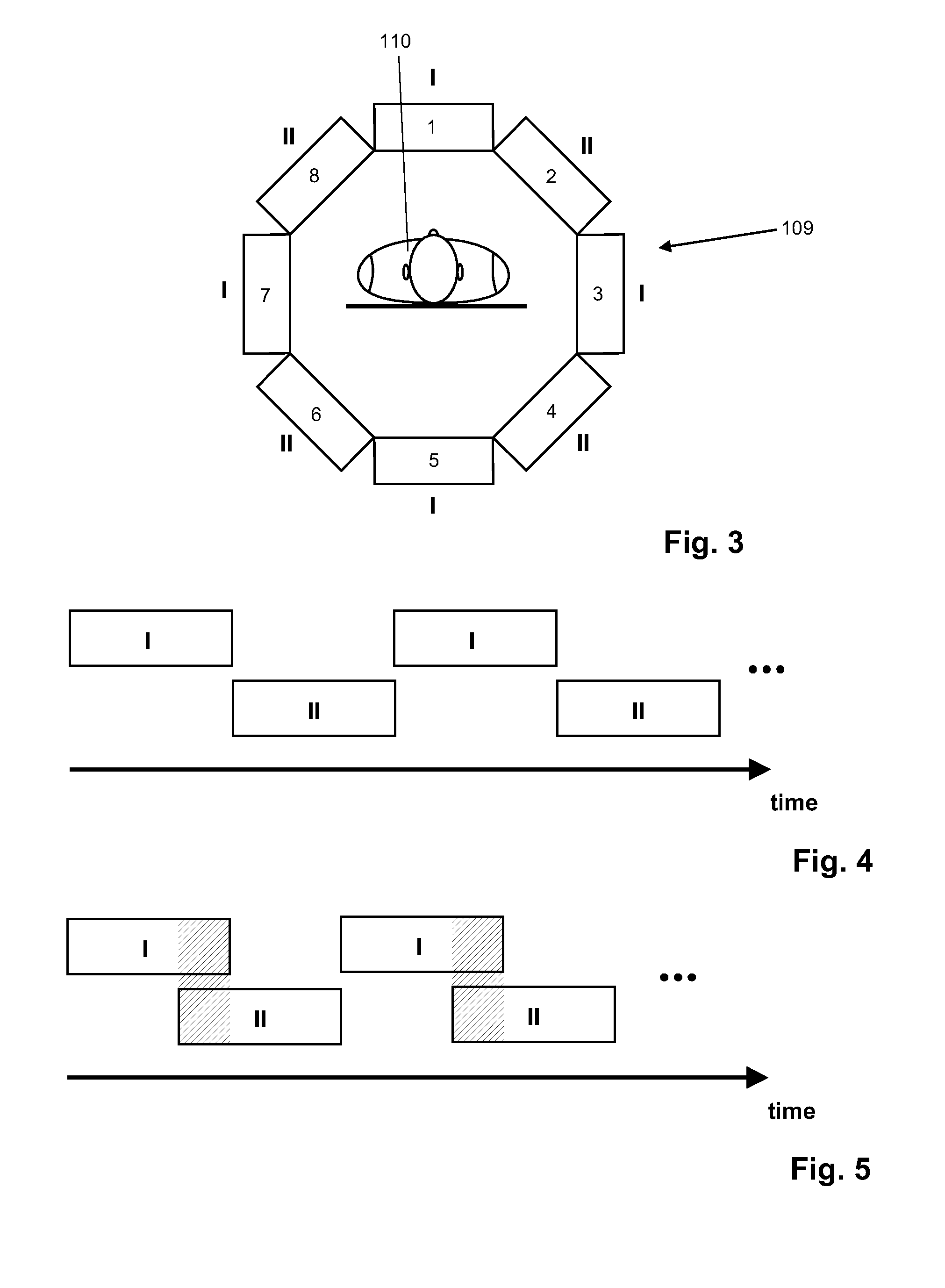Magnetic resonance using quazi-continuous RF irradiation
a quazi-continuous rf and magnetic resonance technology, applied in the field of mr imaging, can solve the problems of insufficient selective saturation prior to the actual acquisition of image data, insufficient contrast, disadvantageous suboptimal apt/cest detection sensitivity, etc., to achieve the effect of maintaining or minimizing the sar contribution and improving the homogeneity of the rf b1 field
- Summary
- Abstract
- Description
- Claims
- Application Information
AI Technical Summary
Benefits of technology
Problems solved by technology
Method used
Image
Examples
Embodiment Construction
[0044]With reference to FIG. 1, a MR device 101 is shown. The device comprises superconducting or resistive main magnet coils 102 such that a substantially uniform, temporally constant main magnetic field is created along a z-axis through an examination volume.
[0045]A magnetic resonance generation and manipulation system applies a series of RF pulses and switched magnetic field gradients to invert or excite nuclear magnetic spins, induce magnetic resonance, refocus magnetic resonance, manipulate magnetic resonance, spatially and otherwise encode the magnetic resonance, saturate spins, and the like to perform MR imaging.
[0046]More specifically, a gradient pulse amplifier 103 applies current pulses to selected ones of whole-body gradient coils 104, 105 and 106 along x, y and z-axes of the examination volume. A multi-channel transmission unit 107 transmits RF pulses or pulse packets via two RF drive ports 119, 120 to a whole-body volume RF coil 109 to transmit RF pulses into the examin...
PUM
 Login to View More
Login to View More Abstract
Description
Claims
Application Information
 Login to View More
Login to View More - R&D
- Intellectual Property
- Life Sciences
- Materials
- Tech Scout
- Unparalleled Data Quality
- Higher Quality Content
- 60% Fewer Hallucinations
Browse by: Latest US Patents, China's latest patents, Technical Efficacy Thesaurus, Application Domain, Technology Topic, Popular Technical Reports.
© 2025 PatSnap. All rights reserved.Legal|Privacy policy|Modern Slavery Act Transparency Statement|Sitemap|About US| Contact US: help@patsnap.com



